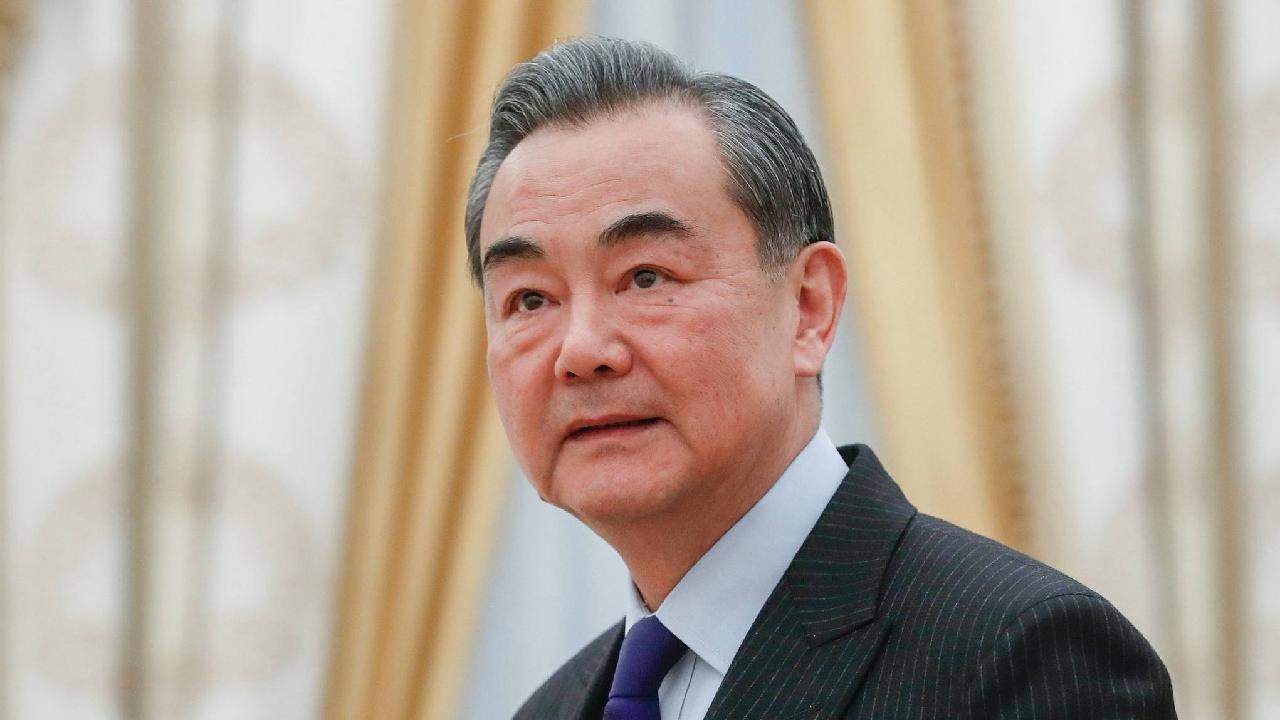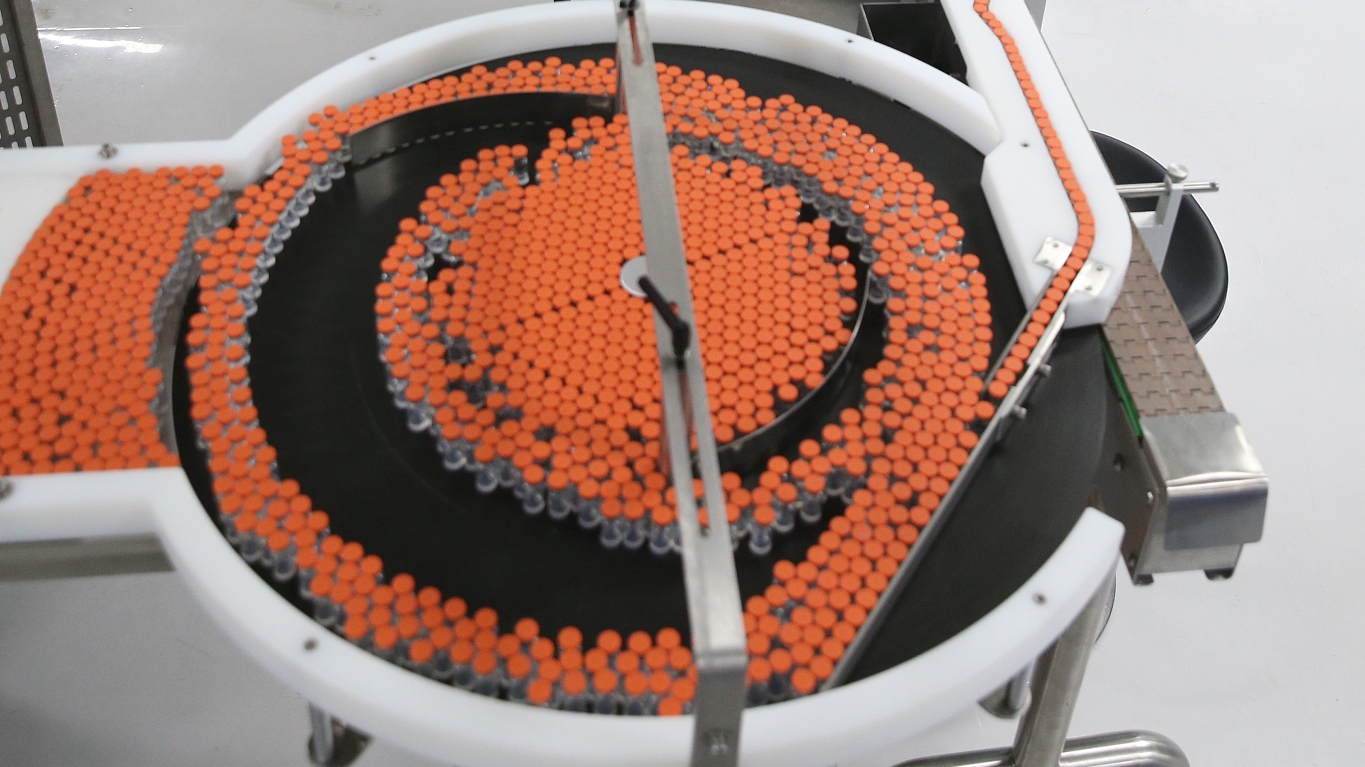
Chinese State Councilor and Foreign Minister Wang Yi. /VCG
Chinese State Councilor and Foreign Minister Wang Yi. /VCG
Editor's note: Yuan Sha is an assistant research fellow at the Department of American Studies of the China Institute of International Studies. A former Fulbright scholar at Columbia University, she has a PhD in International Politics from China Foreign Affairs University. Yuan has published several papers on China-U.S. security relations in Chinese academic journals and is a regular contributor for many Chinese media outlets. The article reflects the author's opinions and not necessarily the views of CGTN.
China hosted online the first meeting of the International Forum on COVID-19 Vaccine Cooperation on August 5, where State Councilor and Foreign Minister Wang Yi delivered President Xi Jinping's written address to the meeting.
Under the theme "Strengthening International Cooperation on Vaccines, Promoting Fair and Equitable Distribution of Vaccines around the World," the meeting convened stakeholders from vaccine-making countries, the business community and international organizations. The meeting wrapped up with a joint declaration, which marked an important step toward global solidarity against the pandemic.
International vaccine cooperation as top priority
The more transimissible and deadlier COVID-19 variants are posing grave challenges to the global fight against the pandemic. The world grapples with a resurgence of disease and deaths, as global confirmed cases crossed the 200 million threshold.
Vaccines hold the key to the ultimate goal of containing the pandemic. So the top priority is to scale up vaccine production to fix the acute global vaccine shortage, and shame rich nations into abandoning the beggar-thy-neighbor "vaccine nationalism" and to help bridge the growing global vaccine divide.
Well aware of the urgency of this matter, President Xi pledged at the Global Health Summit in May to hold an international forum on COVID-19 vaccine cooperation, aimed at helping make vaccines more accessible and affordable worldwide.
China has made prompt actions in convening this meeting. It is a timely event to increase synergies between the public and private sectors, where both sides could identify bottlenecks in production and distribution as well as the global vaccine supply chain. The world also needs to continue to invest in vaccine research and development in order to keep up with new developments.
China's commitment and wisdom
President Xi was the first government leader to pledge to make China-made COVID-19 vaccines a global public good, which has proven to be a prescient statement. China has delivered on this promise. So far, China has already provided over 750 million vaccines to the world.
At this meeting, President Xi pledged to provide 2 billion doses of COVID-19 vaccines to the world and make a donation of $100 million to the COVAX initiative for distributing vaccines to developing countries. China has provided safe, effective, affordable and accessible vaccines to countries in desperate need, an indispensable contribution to the global pandemic control.

Production line of Sinovac COVID-19 vaccine facility /CFP
Production line of Sinovac COVID-19 vaccine facility /CFP
Besides, Wang Yi made four proposals at the meeting, aimed at providing Chinese wisdom to unleash the huge potential of the international vaccine cooperation.
First, to uphold "life first" and promote global accessibility of COVID-19 vaccines. Wang's statement rings true given the scarcity of COVID-19 vaccines. We need to reject the practice of using vaccines for political, economic and strategic purposes. Wang later reiterated that China engages in vaccine cooperation for the purpose of "vaccines for the people of the world", rather than seeking political goals or economic gains, and without any political strings attached.
Second, uphold equity and step up aid for developing countries. For this purpose, Wang pointed out that we are confronting a "capacity deficit," "distribution deficit" and "cooperation deficit" in global COVID-19 vaccine campaign. These three "deficits" pose the greatest challenge of the international vaccine cooperation. On this front, China had made early moves by actively promoting technology transfer and capacity building of the vaccine industry in developing countries, which has proved a promising area of vaccine cooperation.
Third, practice multilateralism and improve effectiveness of international cooperation. China upholds true multilateralism that promotes the common good of the international community not just the elite clubs of Western developed nations. Wang Yi called on multilateral institutions to improve efficiency and transparency in providing vaccines, inclusive financing support and intellectual property right waiver for the benefit of developing and least-developed nations.
Fourth, step up coordination and build effective safeguards against the pandemic. He proposed raising public awareness and confidence toward vaccines, which is important to alleviate vaccine hesitancy. He also proposed coordination between medical and nonmedical intervention, between targeted prevention and emergency response, and between pandemic control and socio-economic development, which is aimed at safely moving toward a sustainable future.
The COVID-19 pandemic is an unprecedented global health and social crisis, and poses a crucial test for the global health governance. This successful meeting would be a strong signal that the world is awakened to the urgent need of global solidarity and the ultimate goal of jointly promoting a global community of health for all.
(If you want to contribute and have specific expertise, please contact us at opinions@cgtn.com.)

